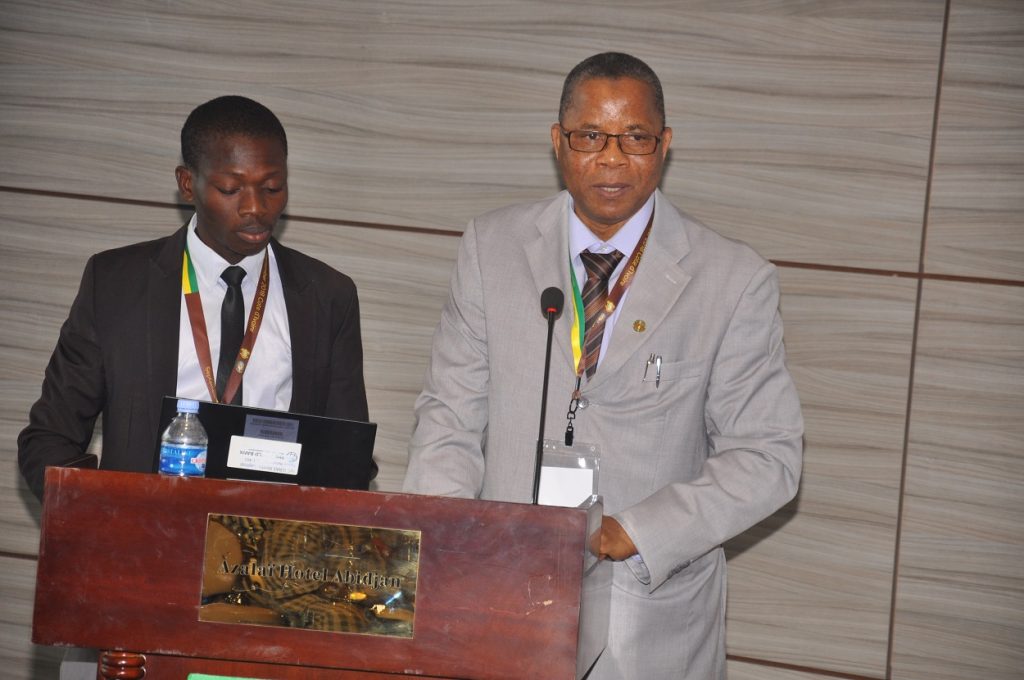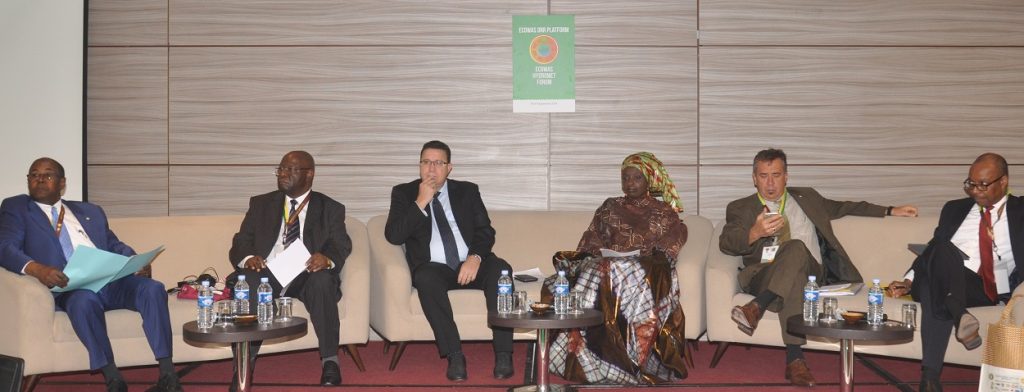ECOWAS Commission calls for energised regional leadership on meteorological, hydrological and climate services
 Abidjan, 19th September 2018. The Commission of the Economic Community of West African States (ECOWAS) has called for an energised leadership that can strengthen meteorological, hydrological and climate services to meet the aspiration of the over 300 million people of West Africa.
Making the call at the start of a three-Day regional hydromet Forum and a Disaster Risk Reduction (DRR) platform in Abidjan, Cote d’Ivoire on the 19th of September 2018, the Commission’s Commissioner, Social Affairs and Gender Siga Fatima Jagne said it has become imperative for the regional leadership to have “a collective focus of undivided attention” in this regard.
The twin event is organized by the ECOWAS Commission in collaboration with the Government of Cote d’Ivoire, the World Bank and other relevant partners to engender a safer, healthier environment and a greater capacity for resilience of the citizenry in the face of prevalent natural upheavals.  Commissioner Jagne submitted that the collective approach to environmental best practices and shared knowledge has to be understood as embodying “a global public good” for climate risk management, climate adaptation and disaster risk management.
All efforts, she noted further, should be made to coordinate and integrate better to achieve the desired impact of building and strengthening the resilience of nations and communities to extreme events and disasters triggered by climate change.
Madam Jagne was supported at the Forum by her counterpart in charge of Agriculture, Water and Environment, Commissioner Sékou Sangare who pledged best exertions by the ECOWAS Commission in meeting the challenges of hydromet services.
Further, Commissioner Jagne held that in order for the prevailing vulnerability not to constitute a major threat to growth and jeopardize recent economic development gains, the coordination, planning and policy advisory capacity for DRR of the African Regional Economic Communities and Member States must be strengthened.
According to her, the challenge of limited resources at the disposal of Member States “is further compounded by the absence of adequate and reliable real time disaster and climate related data and information and their effective integration into national and sector level public investment strategies and early warning systems”  To exit the gloomy times, Jagne recommended on behalf of the President of the ECOWAS Commission Jean-Claude Kassi Brou, the modernization and improvement of hydrological and metrological services in Member States of the regional Community to spearhead innovative and customized solutions to the identified challenges.
Dignitaries, experts and heads of institutions also took turns during the opening ceremony to update participants on the hydromet state of affairs. The Country Director, World Bank in charge of Cote d’Ivoire, Benin, Burkina Faso, Guinea and Togo, Mr. Pierre Laporte, alerted that by 2010, more than 180 million people in Africa will be prone to disaster even as more than 85 million of them are already living in risk prone areas.
Urging a review of hydromet services on the continent, he disclosed that the 54 hydromet Centres currently functioning are underfunded with deteriorating facilities. The scenario, he stressed requires a modernization of the hydromet systems while prioritizing building of the capacity of the hydromet services as part of the paradigm shift.
On his part, the Director, Climate Change and Green Growth, of the African Development Bank (AfDB) Dr. Antony Nyong, told the participants that if the national governments and the regional community are not planning with climate change in mind, then “they must be planning to fail” He said it was for this, and among other reasons that the bank put in $30 million towards strengthening the five regional climate Centres on the continent.
Declaring the forum open, the Ivorian Minister of Transport Amadou Kone who was represented by Director of Cabinet Soro Bakari called for a consolidation of the current efforts aimed at improving hydromet services in the region.
The Forum featured high level sessions, presentations, panel discussions and technical presentations on themes relevant to the objectives of the exercise.
|



